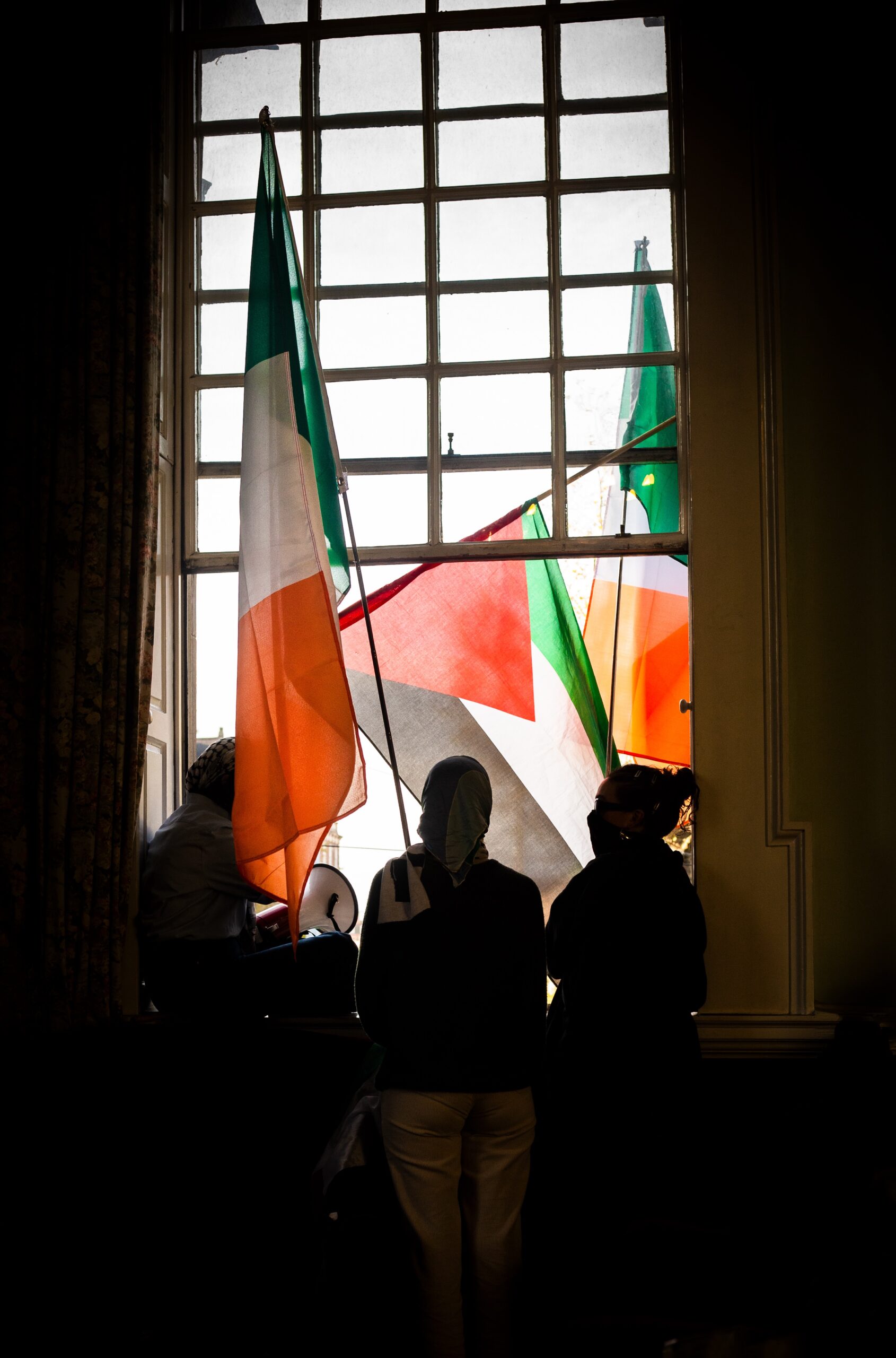In the opinion of the author, the Boycott, Divestment, Sanctions (BDS) encampment organised in May this year snatched defeat from the jaws of victory. On May 8th, an agreement reached between representatives of Trinity BDS, the Trinity College Dublin Students’ Union (TCDSU), and the Postgraduate Worker’s Organisation (PWO) was announced. The encampment boldly demanded full divestment, the severing of academic ties, and the revocation of the bogus fine placed on student activists. The result was far from that. The agreement included a commitment by the university to completely divest from Zionist companies active in the “Occupied Palestinian Territory” (limited to the West Bank and Gaza Strip) which also appear on the UN Blacklist in this regard. No true deadline was stipulated, but the carrying out of this measure was expected in June. Of the fifteen Zionist companies, institutions, and individuals which Trinity was found to have ties to in Trinity BDS’s Freedom of Information Request in November, this definition did not cover a single one of those bodies.
That is not to say, however, that other ties to Zionism were totally ignored by the agreement. They were addressed in the form of the commitment to create a task force which will review Trinity’s other investments and academic ties. As of the time of writing, this taskforce has been formed, but it has yet to meet. Not a single gain has been achieved by this taskforce so far. In fact, it is generally difficult to point to any definite gain or concession won by the Trinity BDS encampment outside of rhetoric and various commitments held to no deadline.
The use of “a task force” should not be new to the student protest movement. In November 2022, the Maynooth Students’ Union (MSU) achieved a similar “Action Group” in response to the #WheresMyLevy protests calling for the resumption of a cancelled student centre project. While the MSU Executives, under the moderate Niall Daly, originally demanded a solid commitment to the resumption of the project, which had been paid for with student levy funds, by settling on an action group, nothing has been done. At protests, Daly had promised students escalation if his original demands were not met.
The danger of agreements based on good faith like the one reached by the Trinity BDS encampment is that they can be stalled perpetually, without any commitment or deadline to suggest otherwise. Concerningly, the attitudes of the agreement’s negotiators reflect a lack of nuance in assessing or even recognising this fact. A triumphant statement on May 11th by TCDSU President László Molnárfi, despite his left credentials, seemed to betray little caution towards the BDS “victory”, stating that history had been made and rather prematurely that Trinity “will end its complicity with genocide, occupation and apartheid.” Regularly engaged in Marxist polemics, he dismissed accusations of being a reformist as “ultra-left waffle.” Conor Reddy, the now-councillor who took part in reaching the agreement through the PWO, stated that “we won”, and openly refused to engage with any criticism of the victory. Reddy is politically interested in his agreement, publicly branding himself as a “negotiator” of the BDS “victory”.
There were a number of issues with how the agreement was reached, primarily in communication. While evening discussion involving a sizable body of the campers regarding a potential wrapping up of the camp took place as early as May 6th, the specific terms of the agreement were not put forward until they had already been reached by a small cohort of representatives. As a result, there was some confusion over the contents of the agreement, along with other concerns which have yet to be addressed within the Trinity BDS campaign, such as reports of discrimination against Muslim students. Despite Molnárfi’s fascination with a “horizontalist” approach to organisation in polemical works which he has authored on The Marxist Humanist Initiative website, his leadership style was ironically quite top-down.
A true victory would have seen a revocation of the anti-student fine, the immediate and unconditional cutting of academic and institutional ties, and full divestment guaranteed to be carried out on a strict deadline rather than on a help-yourself-buffet basis under the advice of a nominally powerless task force. Seeing the incredible political and financial pressure that was placed on Trinity by the encampment, achieved by the hard work of a broad range of student activists, had the camp’s representatives played hardball, something akin to the original demands of the Trinity BDS movement could have been put forward. From the ground, in the author’s view, the persisting attitude among students was far more radical and battle-ready than what their representatives brought to the table, including in support for the Palestinian resistance and an optimism about the camp standing all summer if necessary. The Union of Students Ireland has seen a reformist shift in general, but there is an incredible irony in such a missed opportunity for the radicals from a leadership which so readily branded itself as such.







